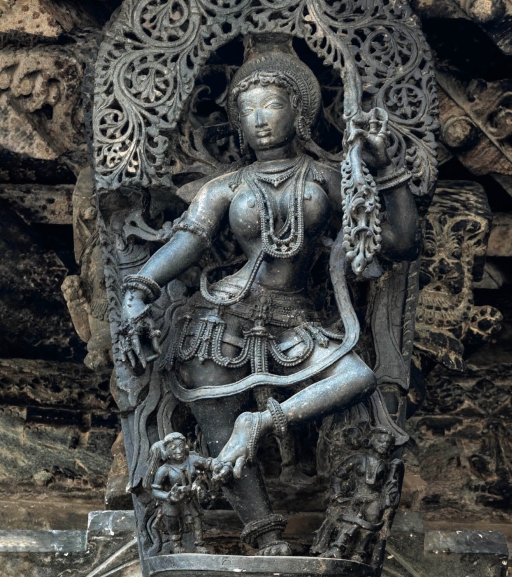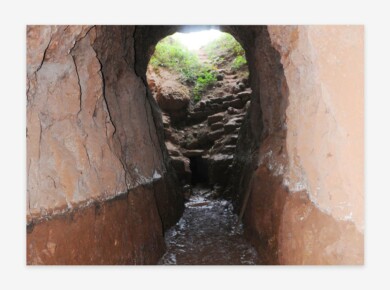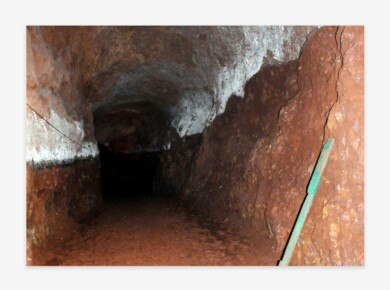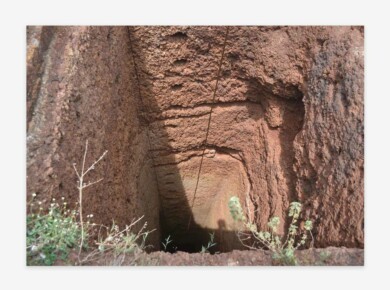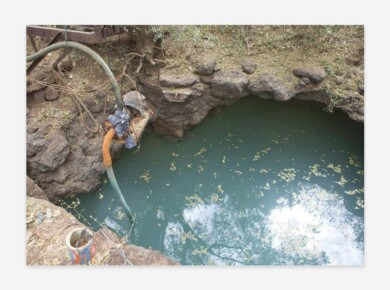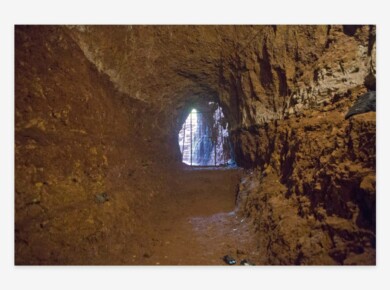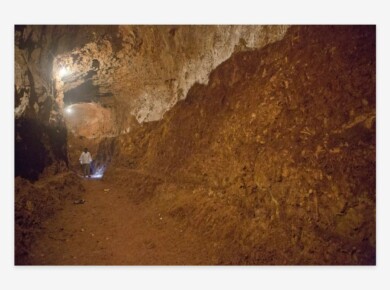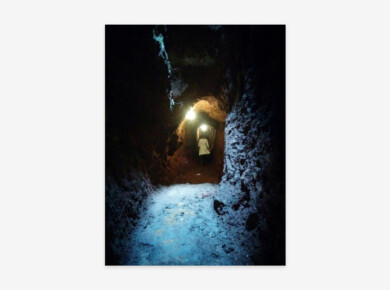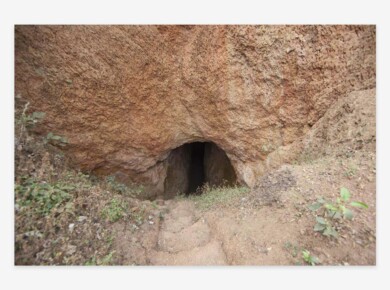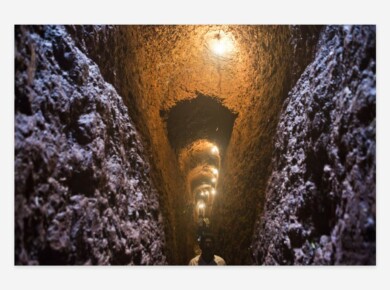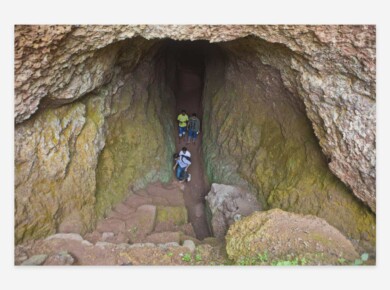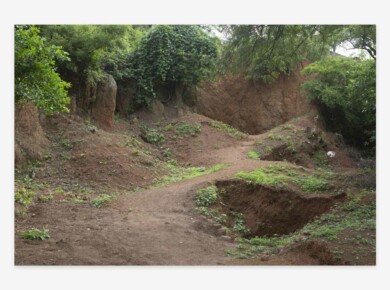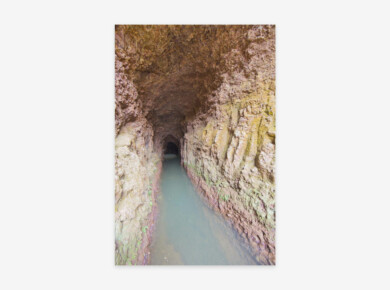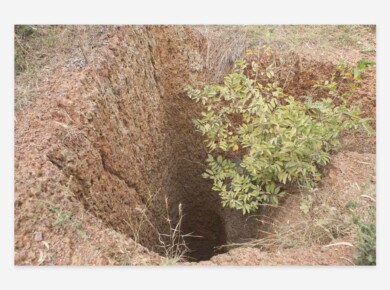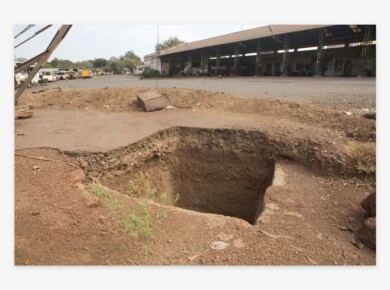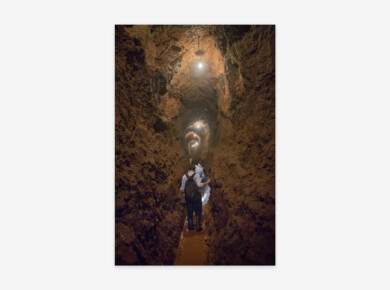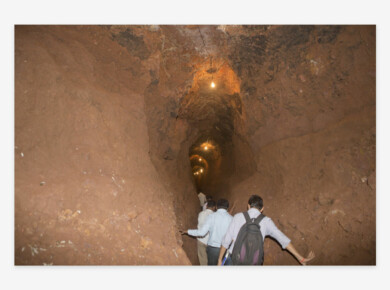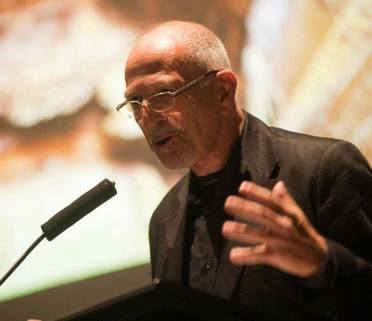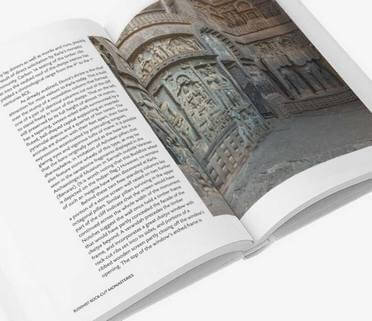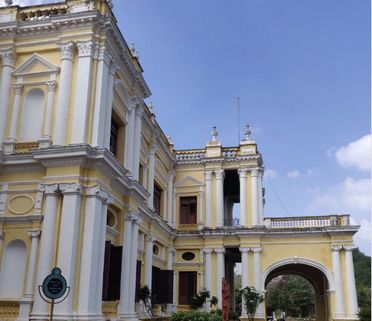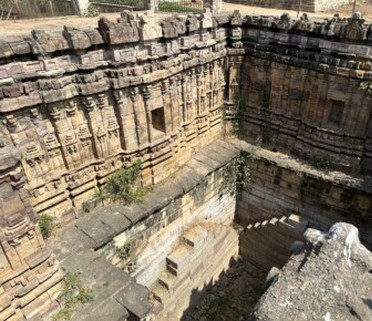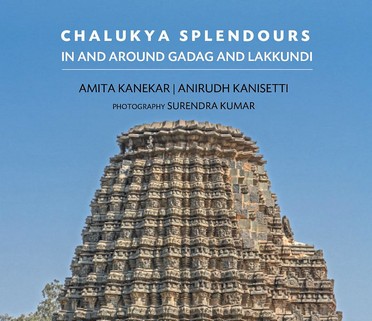Rehabilitation and Revitalisation of the Qanat/Karez system of Bidar (Karnataka)
The DHF has preserved and renewed a historic water conservation system in the Deccan Plateau
The Bahmani dynasty ruled much of the Deccan for almost 200 years, from the mid-fourteenth century to the beginning of the sixteenth century. Their capital, Bidar, now lies in ruins but remains one of the great historical sites of India. DHF’s conservation efforts were focussed on preserving the main city ruins, along with the Royal Necropolis at Ashtur, the Baridi royal sepulchres and gardens, and the nearby fifteenth century Qanat irrigation system, which is still in use today.
Groundwater has always been one of the main water sources in the Deccan region of India and the Qanat/ Karez system is one of the most ingenious methods for collecting, transporting, storing and distributing this essential resource. The Qanat/ Karez system of Bidar, the earliest in the Deccan, was introduced by immigrants from Iran in the fifteenth century, and then adapted by local experts to the particularities of the Deccan’s geological formations.
The Qanat/Karez system consists of gradually sloping, horizontal and subterranean water tunnels carved into water-bearing permeable rock. The tunnels at Bidar are accessed by vertical wells, dug at regular intervals along the length of the horizontal tunnel, providing access to the water. The rehabilitation and preservation of Bidar’s hydraulic system is essential in our times, considering India’s needs for this increasingly scarce resource.
Essential to the restoration of the Qanat/ Karez was ensuring that it would be able to provide clean water to the local communities not only immediately, but also long into the future. With this in mind, the DHF also installed a solid waste management system that currently filters the water, also contributing to the maintenance of the system’s structural integrity. A three-wheeled waste disposal buggy works alongside the water filter for the community, collecting solid waste from local houses and taking it to a waste plant to be treated. Read more about this project here.
Water pollution however is still a concern, and so the DHF is currently fundraising to install a liquid waste management system that will both protect the tunnel from contamination and support the landscape of the areas around the wells and the original water source. Once installed, the resulting landscaped environment will blossom as a social space too, providing a collective location for all the different communities that live along the course of this hydraulic system – unique to the Deccan – to meet, interact and cooperate.
To learn more about this project, watch the video here.
To further explore the Karez, and to keep up to date with the progress of the project, go to http://www.bidarkarez.org/
Details

Project Status
Completed

Location
Bidar, Karnataka

Partners
Funding: Sir Dorabji Tata Trusts
Implementation:
Indian Heritage Cities Network Foundation (IHCN-F)
International Center on Qanats and Historic Hydraulic Structures (ICQHS)
Bidar District Administration
City Municipal Council, Bidar

Environment
Attempted rejuvenation of a historical water system, which is significant, considering the drought-prone nature of the region

Community
Bidar’s growing population will benefit from the restoration of this hydraulic system by gaining a low energy, sustainable water source
Access to clean drinking water, leading to improved health conditions
Water for irrigation, resulting in increased productivity of agricultural lands
A better urban environment
The preservation of an authentic historical engineering marvel

Support Overview
The Tata Trusts sponsored the DHF in the planning phase of the work (undertaken in 2016-18) with US$ 50,000
Nestle India sponsored the DHF for the planning and partial execution of waste management in the areas above the Qanat/ Karez with US$ 50,000 (completed).

